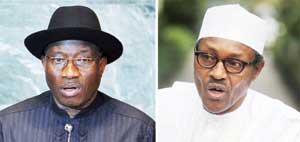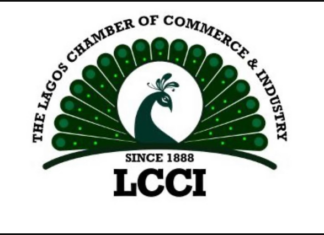On Saturday, March 28, some 68.8 million registered Nigerian voters will elect the president and National Assembly (NASS) legislators.
The question that concentrates the minds of many is whether the country will get it right this time. The answer is important because it holds the key to the future.
 But it is also worrisome that after almost 55 years of independence, we are still asking this question. Elsewhere, elections are like primary school homework: Hold your permanent voter card (PVC), form orderly queues, vote and wait for Independent National Electoral Commission (INEC) officials to count the ballot papers – tally and declare winners and losers.
But it is also worrisome that after almost 55 years of independence, we are still asking this question. Elsewhere, elections are like primary school homework: Hold your permanent voter card (PVC), form orderly queues, vote and wait for Independent National Electoral Commission (INEC) officials to count the ballot papers – tally and declare winners and losers.
In every fair contest, losers congratulate winners and reorganise to beat the winner in subsequent elections.
But Nigerian elections are far from it.
First, politicians find every means, always undemocratic, to beat their opponents before the polls: Rig with fake ballot papers, bribe, harass, threaten and intimidate INEC staff, recruit thugs to disrupt queues at polling booths, stuff ballot boxes with fake thumb-printed ballot papers – or, if all fail, raid polling units with guns.
If need be, they maim and kill opponents.
Of the two many candidates standing for the presidential election, Goodluck Jonathan, candidate of the Peoples Democratic Party (PDP), has been in the saddle for more than five years with some measure of success in certain arrears of governance. As an incumbent, he can and should run on his record.
His vow to shun violence before, during, and after the polls, because his victory or defeat is not worth spilling the blood of any Nigerian, is commendable. But whether his supporters who are threatening fire and brimstone if he loses will key into the sermon remains to be seen. Jonathan must walk his talk if he wants to be taken serious.
Muhammadu Buhari, his main challenger in the All Progressives Congress (APC), has also occupied the prime public office as a military Head of State. He can be assessed on his record. The three-time presidential contest loser, who fought the consequent legal battles to the Supreme Court, has affirmed that he is a converted democrat to the core.
So, Nigerians have a clear cut choice to make.
But for this to happen, all the stakeholders must play their roles diligently and selflessly and also play by the democratic rules. Democracy is a game with rules.
Prominent among the stakeholders, who must, like Caesar’s wife, be above board are security agencies, the INEC and its staff, voters, politicians, election monitors and journalists. Success is the ideal result the entire world seeks to exhale its bated breath.
The security agencies must guarantee the security of citizens before, during, and after the vote. They must create a level playing field for all political parties and remain neutral. The tendency to make security agencies corrupt appendages of the government must be resisted.
Success in Saturday’s election depends essentially on INEC and its staff – what they do or fail to do. INEC Chairman, Attahiru Jega, must appreciate that this is one election that may decide the fate of the country.
It has taken him four years to prepare for the polls and that is enough time to grapple with all the problems, including the late arrival of electoral materials on voting day.
As an umpire, the INEC must be fair to all political parties and candidates. The staff must be transparent in their dealings and ensure nobody occupies an elective public office again without the mandate of the people.
In the democracy value chain, the electorate are as important as all the other actors. They may even be deemed the most important actors because what they do or fail to do with their voter cards determine the direction the country heads in the next four years. That is why in a democracy, the voters are kings.
The last but not the least are the politicians: Too many desperadoes among them equate the gamesmanship of electoral competition to war. Of course, since political office-holding is the largest business in Nigeria with stupendous zero-cost revenue, politicians want posts at all costs. For them, it is do-or-die contest.
However, enlightened democratic governance frowns at such dispositions. Election is only but an event in the democratic process, albeit fundamental, indispensable ingredient. That is why civilised electoral process shuns the violent and disruptive activities of do-or-die politicians.
Election is a game, and like in every game, there must be winners and losers. Granted, every politician goes into electoral contest with the hope of winning, but losing an election is not a crime.
Accepting defeat and congratulating the winner in a free and fair election is a sign of strength, not weakness. The ability of losers to accept defeat is the hallmark of democratic maturity because the loser today may well be the winner tomorrow.
Should all stakeholders play the game by the rules, we may all wake up on March 28 to realise that all the fears nursed in the past few months are nothing but the axiomatic storm in a tea cup.
As Tunde Bakare, Buhari’s running mate in 2011, admonished in an address to Christians at the annual Lenten Lecture of Island Club in Lagos, whoever loses the presidential election should accept the winner and join hands with him to move the nation forward.
“If Buhari wins, let Jonathan accept defeat. Whoever loses is not a loser. And if Jonathan wins, Buhari should accept this as the will of God,” Bakare counselled.
That is the only path of honour and restoration. Nigeria cannot afford another bout of election induced cataclysm.













